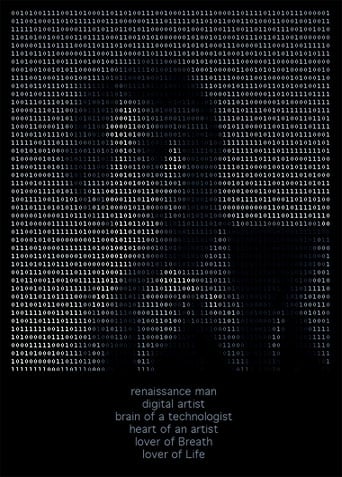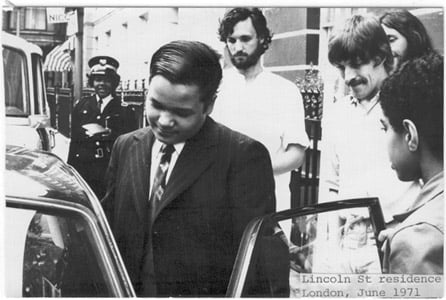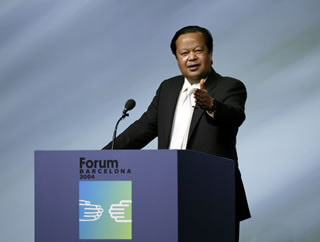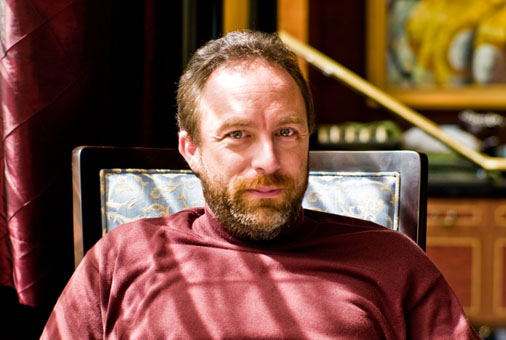Exclusive Think of it as Wikipedia’s police department hotline. The "encyclopedia anyone can edit" includes a page where you can instantly alert the site’s brain trust to foul play. It’s called the "Conflict of Interest Noticeboard. (http://en.wikipedia.org/wiki/Wikipedia:Conflict_of_interest/Noticeboard)" If you suspect someone has rigged the system, using the encyclopedia to push their own agenda, this is where you turn.
But there's a catch. One of the site’s leading administrators bears an extreme conflict of interest, but you can’t expose him from the Conflict of Interest Noticeboard. He created the Conflict of Interest Noticeboard.
This administrator, Jossi Fresco (http://en.wikipedia.org/wiki/User:Jossi), is a longtime student of Prem Rawat - formerly Guru Maharaj Ji - the India-born spiritual leader who styled himself as the "Perfect Master" and fostered a worldwide religious movement encouraging followers to call him "Lord of the Universe."
Jossi Fresco openly acknowledges he's employed by an organization "related" to Prem Rawat, and according to an ex-Rawat-follower and former friend, he served on the guru's personal staff and built the guru's first web site. Nonetheless, Fresco maintains strict control over Wikipedia’s Prem Rawat article (http://en.wikipedia.org/wiki/Prem_Rawat) and countless related articles, keeping criticism of his guru to a bare minimum.
Fresco denies any conflict of interest. He argues that his contributions to Wikipedia's Rawat-related articles do not violate the site's conflict of interest policy, which allows such conflicts if editors disclose them and continue to edit "neutrally." "I have acted in a transparent and straightforward manner with regard to Wikipedia", he told us over email.
In a way, he has acted in a transparent and straightforward manner. He edits Wikipedia under his real name. And he acknowledges a connection to Rawat on his Wikipedia user page. But he won't say how deep this connection goes, and as part of Wikipedia's inner circle, or "ruling clique", he has the power to shape site policies - including the conflict of interest policy.
Fresco also denies he has the power shape site policies, even though he is the third most frequent contributor to the conflict of interest policy - even though he removed the clause that forbade guru followers from editing articles about their gurus.
So why is Wikipedia's treatment of Prem Rawat so one-sided?

Jossie Fresco, in an image from his Wikipedia page (http://en.wikipedia.org/wiki/Image:Jossif.png)1
The inspirational speaker formerly known as...
Prem Rawat's religious movement is widely recognized as a cult or former cult - by independent academics and the mainstream media as well as ex-Rawat-followers. And such sources say that within the movement, Rawat is or was regarded as a divine being.
For example, in their 1982 book Strange Cults: The Great American Cult Scare - well reviewed (http://query.nytimes.com/gst/fullpage.html?res=940CE5D91138F93BA25752C0A964948260&scp=3&sq=divine+light+mission&st=nyt) by The New York Times - David Bromley and Anson Shupe Jr. profiled Rawat's Divine Light Mission alongside the Unification Church, the Children of God, the Hare Krishnas, the Church of Scientology, and the People's Temple. "At one point, Ji was referred to by [Mission] members as Lord of the Universe and was regarded as a living avatar," wrote Bromley, the chairman of sociology at the University of Hartford, and Shupe, an associate professor of sociology at the University of Texas.
And yet the word "cult" does not appear in the guru's Wikipedia biography.
Wikipedia bills itself as an encyclopedia with a "neutral point of view." And co-founder Jimmy "Jimbo" Wales has publicly said that neutrality can't be maintained where there's an obvious conflict of interest, coming down hard on outsiders who've dared cross the line, including Microsoft (http://www.cbsnews.com/stories/2007/01/24/tech/main2392719.shtml) and the ill-fated MyWikiBiz (http://www.sfgate.com/cgi-bin/article.cgi?f=/n/a/2007/01/24/national/a120616S70.DTL). But clearly, within the site's inner circle, such conflicts are allowed - even when it comes to editing site policy.
The Knowledge
Mike Finch followed Prem Rawat - aka Maharaji - for nearly 30 years. He "got the Knowledge" in June 1970, while still living in his native Britain. "I gave [Rawat] two inheritances, gave him a house, gave him all my time and energy - full-time," says Finch, who now lives in the States, just outside Boston, Massachusetts. "Then I realized towards the end, in the late 1990s, that it was really just a cult, that he wasn't the Lord of the Universe and God Almighty, as we all thought."
Finch owes his epiphany in large part to the internet, which belatedly exposed him to information that Rawat’s followers had kept at bay. "Part of the nature of a cult is that it's very enclosed. They have a belief system, and anything outside that belief system is to be distrusted and dismissed."

Mike Finch (center, beard) with Prem Rawat (foreground) near Sloane Square, London, 1971
Finch's internet-fueled realization mirrors that of another "ex-premie," John Brauns, a Brit who now lives in Latvia.
"At the end of 1998, I found a website - a website (http://ex-premie.org) I now run," says Brauns. "Just reading this website allowed me to do something I'd never done before, which is actually question my own beliefs. I remember sitting there after a couple of weeks of reading the testimonies on the site and asking myself 'Am I rejecting Maharaji?' It was really a scary thing to ask. That part of my mind was closed. But I said 'Yes.'"
"The thing about being in a religious cult is that something happens where the beliefs are reinforced and a person doesn't allow themselves to think anything different," he says. "I didn't allow myself to rationally consider even a simple question like 'What is the likelihood of this guy being the new Jesus?' That may sound stupid to someone who has never been in a cult, but that's the way it is."
Because the internet played such an important role in their decisions to abandon Rawat, both Finch (http://www.mikefinch.com/mj/hl.htm) and Brauns (http://ex-premie.org) now run websites dedicated to providing a portrait of the guru that's very different from the picture painted by Wikipedia.
Guru Rebranded
Wikipedia portrays Prem Rawat "as a speaker on the subject of inner peace". This fits with the public persona Rawat has cultivated since the mid-80s. But it doesn't tell the whole story. Wikipedia doesn't just omit references to the Rawat's private persona. It omits references to the very public persona he fostered from the 60s through to the early 80s.
In November 1972, Time Magazine (http://www.time.com/time/magazine/article/0,9171,944540,00.html) profiled Prem Rawat, then 14-years-old, with a story entitled "Junior Guru." "The Maharaj Ji's mother and three older brothers literally worship him, kissing his 'lotus feet' whenever they are in his presence. To them as to his other followers, he is the 'Perfect Master' and 'Lord of the Universe'," the story read.
"In 1971, the master's American premies (loved ones) heralded his advent in the U.S. with a press release stating: 'He is coming in the clouds with great power and glory, and his silver steed will drift down at 4 p.m. at Los Angeles international airport, TWA Flight 761.' That was enough to attract a coterie of guru buffs and various other seekers. In little over a year their number has swelled to some 30,000 youthful followers who man 'Divine Light' centers in 45 states."
But around the mid-80s, according to Mike Finch and John Brauns, Rawat reinvented his public image. He dropped the honorific Guru Maharaj Ji, encouraging followers to call him Maharaji. He changed the name of his movement from the Divine Light Mission to Elan Vital. And he dissuaded followers from publicly discussing his private attitudes.

Prem Rawat
"Up until this time he was promoting himself as God or greater than God, as a divine being, and people were repeating that," says Brauns. "Then he decided he needed a more low-key image - though he still wanted to keep the devotion that his followers had for him. He ordered all the movement's materials to be destroyed, including magazines and photos - materials where he promoted himself as a divine being."
In private, Mike Finch says, Rawat is still called "Lord" or, less frequently, "Lord of the Universe." But in public, he's called other things entirely: "Back in the 80s, there was this public-private split. People still kiss his feet. People still give him all their money. But he's developed a new public persona, reinventing himself as an 'inspirational speaker'."
"He basically went under the radar of the press," Brauns explains. "I remember him saying at a speaking engagement in the late 80s what a great achievement it was that when newspapers published lists of cults, they no longer included him."
Rawat Relations
Mike Finch and Jossi Fresco were once close friends, according to Finch. In the early 90s, both worked for a company called MediaForum, based in Brighton, England. Around 1994, the company - which was run entirely by followers of Prem Rawat - opened an office in Boston, moving Finch stateside. Shortly thereafter, Finch says, the guru tapped Fresco to work in his personal office outside Los Angeles.
"Because of his [computer] skills, Jossi was headhunted by Maharaji himself," says Finch, recalling conversations he had with Fresco at the time. "He got the call and moved with his wife and two kids to work in what was called Maharaji's office, which is like working in the office of the President."
At the time, Finch was a devoted follower. He continued to speak to Fresco on the phone, and during these conversations, Fresco explained his relationship with the guru in detail, Finch told us.
"When you're a follower, to be with Maharaji is the ultimate. We thought he was the Lord. He was God," Finch continues. "Jossi used to tell me how blessed he was to be with Maharaji, actually sitting at his desk." According to Finch, Fresco was charged with overseeing the guru's local area network, hardware, and software. He built Rawat's first website, Finch says.
When we contacted Fresco, he declined to speak to us on the phone, but he did answer some questions over email. He said that he "does not now work in Mr. Rawat's office" - though he was vague about whether he's worked in this office in the past. When we asked specifically if he had ever worked in Rawat's office, he declined to answer, saying "I am a private person, and have no intention to disclose my personal life, my job, or other such details just because I edit Wikipedia."
Unlike most of the Wikipedia elite, Jossi Fresco joined the site under his real first and last name - though he has since shortened his Wikipedia handle to "Jossi (http://en.wikipedia.org/wiki/Wikipedia:Changing_username/Archive4#Jossifresco)." And more than two years after joining, he posted a "disclosure" (http://en.wikipedia.org/wiki/User:Jossi/Disclosure) deep inside his user page that says he works for an organization "related" to Prem Rawat.
Meanwhile, a 2002 post to a spam-related usenet group (http://groups.google.com/group/news.admin.net-abuse.sightings/msg/2ee3f6e1af0079d5?utoken=A0YPlz4AAAAfTPxMbGb5Zj8Kou0cNpOrM1r1zGy0Xywa0cy3UA2tV2VcnRkbOpWnuBFIroN0OLP3n0HewLq1b8LBvzQPOUTV) shows that Jossi Fresco was once listed as webmaster for the website of The Prem Rawat Foundation. Today, domain name records do not list a webmaster for the site.
Rules of the Game
"As I have accepted a position in a related organization," Fresco's Wikipedia disclosure begins, "I may reduce the level of my involvement in editing articles related to Prem Rawat and organizations that support his work."
Transparent and straightforward? Yes, as far it goes. But the wording makes it seem like Fresco accepted this Rawat-related job only recently, and he stops short of saying he will quit editing Rawat-related articles. He merely says he "may reduce" his involvement, and he says he will continue to enforce Wikipedia policy where these articles are concerned:
Nevertheless, I intend to continue to actively monitor these articles for vandalism, correct mistaken or out-of-date facts, provide new material attributable to reliable sources, and engage other editors in the talk pages for discussions on how to better these articles. I also intend to continue enforcing talk-page discipline and the policy of Wikipedia:Biographies of living people when needed. If I make any contributions to these articles, I will exercise extra caution by ensuring that my edits are in full compliance with Wikipedia content policies.
Elsewhere on Wikipedia, he says (http://en.wikipedia.org/wiki/User_talk:Tgubler) that he no longer edits Rawat-related articles, but this is not the case (http://tools.wikimedia.de/~interiot/cgi-bin/Tool1/wannabe_kate?username=Jossi&site=en.wikipedia.org). He not only polices the content, he continues to make actual changes on his own. And most of the other edits are handled by two editors - Momento and Rumiton - who seem to be fellow Rawat followers.
Still, Fresco told us his conduct is well within Wikipedia's rules. According to the site's official conflict of interest policy, you're allowed to edit articles where you have a conflict of interest as long as you edit neutrally - i.e. tell all sides of the story - and openly divulge that conflict of interest. Fresco posted his disclosure soon after this policy was first formalized.
But it's questionable if Fresco is editing neutrally - and it's questionable if he has completely divulged his conflict. And even if he does meet these criteria, he's still on shaky ground. After all, he helped write the conflict of interest policy.
"So long as you divulge a conflict and you edit appropriately in light of that conflict, then it's OK to continue editing," says another senior administrator, who requested anonymity. "But Jossi made considerable revisions to that conflict of interest policy himself, including deleting a section about having a conflict of interest relating to your guru."
Criticism of Prem Rawat
According to Wikipedia's "user contribution" tool (http://en.wikipedia.org/w/index.php?title=Special:Contributions&dir=prev&limit=1000&target=Jossi), Fresco's first 2400 edits - spread over more than a year from April 2004 to August 2005 - were almost entirely devoted to Prem Rawat- or cult-related articles. The edit histories of Momento (http://en.wikipedia.org/w/index.php?title=Special:Contributions&dir=prev&limit=1000&contribs=user&target=Momento) and Rumiton (http://en.wikipedia.org/w/index.php?title=Special:Contributions&dir=prev&limit=1000&contribs=user&target=Rumiton) look much the same.
At one point, Wikipedia's Prem Rawat article (http://en.wikipedia.org/wiki/Prem_Rawat) - which was actually created by Mike Finch - was a rather lengthy biography. But then Fresco took hold of it. Working in tandem with others, he soon created (http://en.wikipedia.org/w/index.php?title=Criticism_of_Prem_Rawat&oldid=4335113) a separate article called "Criticism of Prem Rawat," moved all Rawat criticisms to this new article, and eventually had it deleted (http://en.wikipedia.org/wiki/Wikipedia:Articles_for_deletion/Criticism_of_Prem_Rawat).
"All critical material was moved to an article of its own: 'Criticism of Prem Rawat," says a senior admin. "Jossi created that, with the intent that it wouldn't over-burden the main article. But then that article was merged back into the main article and basically deleted. All that critical material was pretty much all deleted, so the current article bears very little resemblance to the article of two years ago. It's shorter, and it's all positive."
Fresco can shape content in such ways because he has plenty of editors working alongside him - and he has plenty of time for on-site politics. Judging from the last nine months, roughly 35 per cent of Fresco's edits are made during standard California business hours.
"Jossi ranks among the top three editors by contributions to three out of the four key content policies," says a senior admin, referencing stats available from a Wikipedia contribution analysis tool (http://vs.aka-online.de/wppagehiststat/). "What makes this remarkable is that two of those policies have been in existence since Wikipedia was founded, long before he got involved, so he's made enough recent edits to catch up." Fresco's influence is particularly conspicuous when it comes to the policies concerning conflict of interest and biographies of living persons.

John Brauns, ex-premie
In helping to shape the biographies of living person policy, Fresco has worked to ensure (http://en.wikipedia.org/w/index.php?title=Wikipedia:Biographies_of_living_persons&diff=79874276&oldid=79873850) that editors can immediately remove negative material about a living person if it's "unsourced" or "poorly sourced". With other articles, material often remains in place while sources are validated. This is certainly a good thing for Wikipedia as a whole. It prevents libel and defamation (http://en.wikipedia.org/w/index.php?title=Wikipedia:Biographies_of_living_persons&diff=32418934&oldid=32350970).
But Fresco has also worked to ensure (http://en.wikipedia.org/w/index.php?title=Wikipedia%3ABiographies_of_living_persons&diff=32706397&oldid=32538046) that self-published material is fair game with biographies of living persons - as long as it's "not unduly self-serving". So, if an article discusses a living person, it can include positive information from a blog or web site published by that person. But critical information isn't allowed unless it comes from an independent "reputable" source (http://en.wikipedia.org/w/index.php?title=Wikipedia%3ABiographies_of_living_persons&diff=32706397&oldid=32538046).
Meanwhile, Fresco uses this policy to control the content on Prem Rawat-related Wikipedia articles - he says as much in his Wikipedia disclosure - and though other well-known mainstream sources refer to Rawat's religious movement as a cult, such information is largely absent from Wikipedia.
The word cult appears at the bottom of the Elan Vital (http://en.wikipedia.org/wiki/Elan_Vital_%28organization%29) article. But it is absent from the Divine Light Mission (http://en.wikipedia.org/wiki/Divine_Light_Mission) article as well as the Prem Rawat article.
Because Rawat has done his best to avoid the press since the mid-80s, published criticism of the guru is now scant. But as John Brauns (http://ex-premie.org/pages/press_room.htm) and others (http://www.prem-rawat-critique.org/wp_rebuttal/sources.htm) and still others (http://www.rickross.com/groups/vital.html) point out, it isn't hard to find mainstream publications that provide information about Rawat and his movement you won't find on Wikipedia. This includes several academic studies as well as articles from such publications as The New York Times (http://query.nytimes.com/gst/fullpage.html?sec=health&res=950CE1DF133BF936A25750C0A964948260&scp=2&sq=%22divine+light+mission%22&st=nyt) and The Washington Post (http://pqasb.pqarchiver.com/washingtonpost_historical/access/137281962.html?dids=137281962:137281962&FMT=ABS&FMTS=ABS:AI&date=Mar+12%2C+1982&author=By+John+Feinstein+Washington+Post+Staff+Writer&pub=The+Washington+Post++(1974-Current+file)&edition=&startpage=B4&desc=Bill+on+Guardians+for+Cult+Members+Elicits+Emotional+Testimony+on+Both+Sides+of+Issue). And the list goes on.
A Conflict of Conflict of Interest
In similar fashion, Fresco has heavily influenced Wikipedia's conflict of interest policy. He's made more edits to the policy than all but two other Wikipedians.
Shortly after the policy was first drafted in October 2006, it included a section that forbade guru followers from editing articles about their gurus.
"Friedrich Engels would have had difficulty in editing Karl Marx. Such a close friend and follower surely would have had conflict-of-interest problems," the policy once said. "The same may go for disciples of 'gurus,' of 'senseis' in the martial arts, or any other area where a strong personal relationship is implied in the teacher-pupil bond. Particularly for traditional teachers, but in other cultural areas such as academia, a devoted pupil may be conflicted. Edits by those whose loyalties to such a teacher transcend any stake in this project may have to be treated as suspect."
But Fresco removed (http://en.wikipedia.org/w/index.php?title=Wikipedia%3AConflict_of_interest&diff=83459540&oldid=83060639) this language, defending (http://en.wikipedia.org/wiki/Wikipedia_talk:Conflict_of_interest/Archive3#Discipleship) the change on the policy's discussion page. The original author of the policy, Wikipedia Arbitration Committee member Charles Matthews, in turn argued that Fresco shouldn't be anywhere near the conflict of interest policy.
"You have again removed the word 'discipleship', and again without prior discussion," Matthews told Fresco, after Fresco made another edit to the policy. "You are very clearly a conflicted editor in so doing, and I have explained at great length on your User Talk that you are in violation of very specific matters laid down in terms on Wikipedia:Editing with a conflict of interest, for editing with any conflict of interest, or apparent conflict of interest. The fact that the page that you are editing in this way is the guideline defining conflict of interest only makes it more serious as a matter."
But the guru language was not returned to the policy - and Fresco continued to referee his own game. When we spoke to Matthews on the phone, he declined to discuss Fresco in particular, but he made a point of saying that Wikipedia's conflict of interest policy is merely a "guideline." "It was meant not to be enforced in a harsh way," he said.
Shortly after butting heads with Matthews, Fresco created (http://en.wikipedia.org/w/index.php?title=Wikipedia:Conflict_of_interest/Noticeboard&offset=20070103225518&limit=500&action=history) the Conflict of Interest Noticeboard. And yes, users have tried - and failed (http://en.wikipedia.org/wiki/Wikipedia:Conflict_of_interest/Noticeboard/Archive_12#Jossi.C2.A0.28talk.C2.A0.C2.B7_contribs.29_Conflict_of_interest_on_Prem_Rawat_related_articles) - to use the noticeboard as means of preventing Fresco from editing and policing Rawat-related articles.
Community consensus
Fresco has not only tweaked the conflict of policy to permit his own edits to Prem Rawat-related articles. He has tweaked it to prevent edits from those who oppose him. Around this same time, Fresco suggested (http://en.wikipedia.org/w/index.php?title=Wikipedia_talk:Conflict_of_interest&diff=prev&oldid=83629587) that people who've been involved in legal disputes should not be allowed to edit related articles. And uber-admin SlimVirgin made the change (http://en.wikipedia.org/w/index.php?title=Wikipedia_talk:Conflict_of_interest&diff=prev&oldid=83629587).
This came just twelve hours after Fresco went out of his way to welcome the arrival of a new editor, Tgubler (http://en.wikipedia.org/w/index.php?title=User_talk:Tgubler&oldid=83537978), to Wikipedia. Then, a week later, Fresco told (http://en.wikipedia.org/wiki/User_talk:Tgubler) this editor he should not edit Rawat-related articles because he'd been involved in a legal dispute with a subsidiary of Elan Vital. Three weeks after that, Fresco enforced (http://en.wikipedia.org/wiki/User_talk:Jossi/Archives/13#Conflict_of_Interest) this with help from another uber-admin, Jayjg.
Fresco told us over email that his ability to shape Wikipedia policy is limited. "Policy is not shaped by individuals, rather, it shaped by community consensus," he told us. "Proposals for policy page changes made by any editor, attracts vigorous debates in the community. There is no one single person in Wikipedia that can 'shape' policy." But others see this differently.
"The bottom line is that a single person can make extensive changes to Wikipedia policies and guidelines if they put their mind to it," says a senior administrator. "A single editor who is determined, patient, expert in Wikipedia customs, well connected, and a bit ruthless will typically prevail over many less interested, impatient, unconnected editors who disagree with him.
"In my opinion, [Fresco's] entire career at Wikipedia has one goal: promoting his guru. But he's not a stupid guy, like a lot of people who come through with a strong opinion. He doesn't insist on doing things his way. He's been assiduous with building relationships, with other editors and admins, doing a lot of favors for folks to get into their good graces."
Don't bring it on
The ultimate irony here is that Jimmy Wales has long told the press that conflict of interest isn't tolerated at Wikipedia.
In January last year, Microsoft landed in Wikipedia's doghouse after it tried to pay a blogger to change certain articles (http://www.cbsnews.com/stories/2007/01/24/tech/main2392719.shtml) on the site. "We were very disappointed to hear that Microsoft was taking that approach," Jimmy Wales told The Associated Press.

Jimmy "Jimbo" Wales 2
That same week, The AP (http://www.sfgate.com/cgi-bin/article.cgi?f=/n/a/2007/01/24/national/a120616S70.DTL) detailed Wikipedia's efforts to crack down on a fledgling company called MyWikiBiz, which offered to edit Wikipedia articles on behalf of others in exchange for cash. In speaking with The AP, Wales proclaimed that Wikipedia is no place for PR:
Wales agreed in an interview that companies and regular people likely are surreptitiously editing their own entries, doing in secret what MyWikiBiz was open about. But that doesn't mean the site should give up trying to prevent public-relations efforts, Wales said."
"It's one thing to acknowledge there's always going to be a little of this, but another to say, 'Bring it on,'" he said.
Yet Wales and the ruling clique have certainly said "Bring it on" to Jossi Fresco. The Wikipedia elite are well aware (http://en.wikipedia.org/wiki/Wikipedia:Requests_for_adminship/Jossifresco) of his conflict. And by Wikipedia elite, we mean uber-admins other than Jossi Fresco.
At Wikipedia, all sorts of people end up controlling all sorts of articles. Jimmy Wales says as much in his conversation with The AP. But this case shows just how far the problem goes. Jossi Fresco may bear the most extreme conflict of interest in the history of Wikipedia - and he edits the policy that governs conflict of interest. ®
Footnotes
(1) Reproduced under the Creative Commons Attribution ShareAlike 2.5 License (http://creativecommons.org/licenses/by-sa/2.5/).
(2) Reproduced under the Creative Commons Attribution 3.0 Unported License (http://creativecommons.org/licenses/by/3.0/).
Related stories
Wikia unsheathes antidote to 'unhealthy' Google (7 January 2008)
http://www.theregister.co.uk/2008/01/07/jimmy_wales_launches_wikia_search/
Truth, anonymity and the Wikipedia Way (18 December 2007)
http://www.theregister.co.uk/2007/12/18/the_wikipedia_paradox/
Wikipedia COO was convicted felon (13 December 2007)
http://www.theregister.co.uk/2007/12/13/wikimedia_coo_convicted_felon/
Wikipedia black helicopters circle Utah's Traverse Mountain (6 December 2007)
http://www.theregister.co.uk/2007/12/06/wikipedia_and_overstock/
Secret mailing list rocks Wikipedia (4 December 2007)
http://www.theregister.co.uk/2007/12/04/wikipedia_secret_mailing/
Braindead obituarists hoaxed by Wikipedia (3 October 2007)
http://www.theregister.co.uk/2007/10/03/wikipedia_obituary_cut_and_paste/
If surgery was like Wikipedia... (9 March 2007)
http://www.theregister.co.uk/2007/03/09/wikipedia_letters/
Farewell, Wikipedia? (6 March 2007)
http://www.theregister.co.uk/2007/03/06/wikipedia_crisis/
Bogus Wikipedia Prof. was blessed then promoted (2 March 2007)
http://www.theregister.co.uk/2007/03/02/wikipedia_fraud/
Wikipedia defends Reality (2 February 2007)
http://www.theregister.co.uk/2007/02/02/colbert_wikipedia_reality/
© Copyright 2008



No comments:
Post a Comment